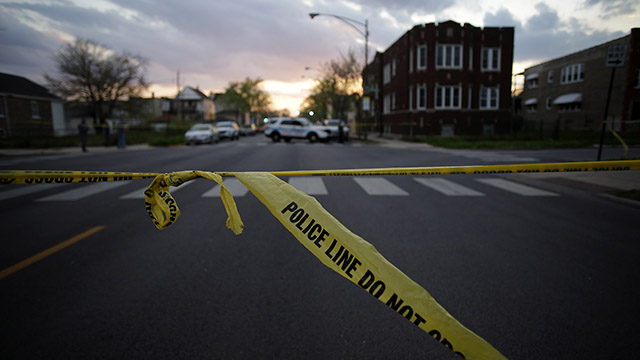CHICAGO - More students report carrying guns in Chicago than in New York or Los Angeles, a new Northwestern Medicine study shows. The findings provide historical background for Chicago’s 2016 spike in gun violence, which occurred mostly among youth and young adults.
While self-reported gun carrying increased in Chicago over the 2007 to 2013 time period, it declined rapidly in Los Angeles and remained less than half the Chicago rate in New York, according to the study from Northwestern University Feinberg School of Medicine.
The prevalence of high school freshman and sophomore students who reported carrying a gun was 9 percent in Chicago, 4 percent in New York and 6 percent in Los Angeles between 2007 and 2013, the study found.
The city was fertile ground for this increase in shootings.”
Professor of general internal medicine, geriatrics and preventive medicine
The authors hypothesize Chicago students between the ages of 14 and 16 who were carrying guns in 2013 were likely involved in Chicago’s gun violence in 2016 and 2017.
“Our findings suggest that there is a clear link between the increase in Chicago students carrying guns in 2013 and the city’s spike in gun violence in 2016,” said senior author Joseph Feinglass, professor of general internal medicine, geriatrics and preventive medicine at Feinberg. “The city was fertile ground for this increase in shootings.”
The study is the first of its kind to compare major cities on self-reported gun carrying among younger high school students. It was published April 10 in the journal Injury Epidemiology.

“It’s not hard to imagine why more students in Chicago carry guns than the other two cities with significant violence and homicide burden,” said co-author Dr. Karen Sheehan, professor of pediatrics and preventive medicine at Northwestern University Feinberg School of Medicine and a physician at Ann & Robert H. Lurie Children’s Hospital of Chicago. “Kids in Chicago are experiencing multiple layers of violence and fear of violence in school on a daily basis.”
The study authors created a violence index to better categorize the most high-risk students and describe the magnitude of their increased likelihood to carry a gun. This violence index accounted for mental health risk factors, such as feeling sad or hopeless, and behavioral health factors, such as bullying and physical fights at school. Students in Chicago had a significantly higher prevalence of almost all mental health and behavioral health risk factors compared to their peers in New York or LA.
“Our findings highlight the ongoing need to address Chicago's concentrated poverty and unemployment problems, its extreme levels of racial and ethnic segregation and the hopelessness and isolation so many young people feel,” Feinglass said.
Across all three cities, self-reported gun carrying was more frequent among boys (8.4 percent) than girls (2.5 percent). Six percent of African-Americans reported carrying a gun in the previous 30 days, which was higher than Hispanics (5.5 percent) and non-Hispanic whites (3.5 percent).
The study was based on self-reported data from the national Youth Risk Behavior Surveillance System (YRBS), an anonymous, voluntary survey of public high-school students, for the three cities between 2007 and 2013. More than 50,000 respondents represented more than 1.13 million students. The study used four biennial waves of the YRBS. It focused on freshmen and sophomores because of the significant high school dropout rates among older students.


